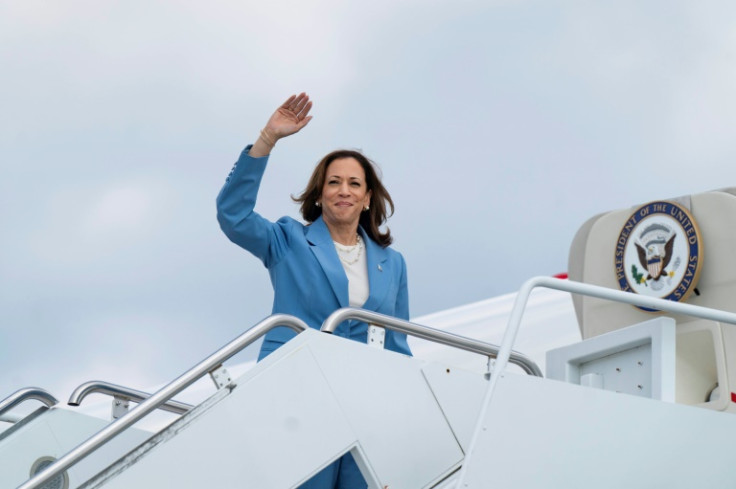Trump and Harris Face Off in Pennsylvania: Crucial Weekend Showdown as Polls Tighten Ahead of DNC

Donald Trump and Kamala Harris are holding dueling campaign stops in the crucial battleground state of Pennsylvania this weekend, as new polling shows the US vice president making major gains ahead of her big moment at next week's Democratic National Convention.
Trump will hold a rally in the small town of Wilkes-Barre on Saturday, while Harris is taking her tour bus on several stops around Pittsburgh on Sunday before heading to the convention in Chicago.
The momentum in the White House race has shifted dramatically since President Joe Biden abruptly pulled out on July 21, with Harris's whirlwind entry energizing the Democratic Party base.
A survey by the New York Times and Siena College published Saturday had Harris storming back into contention in four critical battleground states that Trump had looked set to win comfortably against Biden.
The Republican has struggled to find an effective counter to the Harris surge, and the new poll will likely trigger further consternation in his campaign team, with the vice president now ahead in Arizona and North Carolina, and getting closer in Nevada and Georgia.
The stakes will be high for Trump to find some fresh impetus at Saturday's public rally, after a series of distinctly low-energy events held at his Florida resort home and a golf club he owns in New Jersey.
The Trump campaign's statements have focused on issues like immigration and inflation, but the candidate himself has spent large chunks of recent speeches launching personal attacks against Harris, which may not play well with the undecided and independent voters he needs to win on November 5.
"Hard-working Americans are suffering because of the Harris-Biden administration's dangerously liberal policies," a campaign statement said ahead of the Wilkes-Barre rally.
"Prices are excruciatingly high, cost of living has soared, crime has skyrocketed, and illegal immigrants are pouring into our country," it said, although a recent crackdown on the Mexico border has stemmed much of the flow of undocumented workers and asylum seekers.

Whether Trump can stay on that message is another matter.
Speaking to reporters on Thursday, Trump argued that he felt perfectly "entitled" to keep up his personal attacks on Harris -- the first Black woman nominee of a major party in history.
His remarks have included questioning Harris's intelligence, attacking her racial identity and branding her a "communist."
With polls showing the head-to-head race very close, it is the swing states -- especially Pennsylvania -- that will decide the final result under the US electoral college system.
Trump lost the state by a narrow margin against Biden in 2020 but has strong support in rural areas and small towns.
A separate New York Times/Siena poll last week showed Harris narrowly ahead in Pennsylvania and the two other northern battleground states of Michigan and Wisconsin.
The vice president will be hoping to keep the poll momentum going as she heads into the Chicago convention, which will feature three days of speeches from party leaders, including Biden and former president Barack Obama.
Harris will round out the event on Thursday evening, with her own speech to formally accept the party nomination.
With election day rapidly approaching, Harris is trying to distance herself from unpopular Biden policies, while getting ahead of Trump's attempts to brand her a liberal extremist.
The past week has seen the two sides home in on voters' worries about the economy.
Trump hammered Harris on Thursday, saying she has a "very strong communist lean" that would bring the "death of the American dream."
On Friday, Harris held an event in North Carolina to unveil a series of proposals to ease the burden of post-Covid pandemic inflation.
She noted that the US economy was booming while conceding that "many Americans don't yet feel that progress in their daily lives."
"Donald Trump fights for billionaires and large corporations," she said. "I will fight to give money back to working- and middle-class Americans."
© Copyright AFP 2025. All rights reserved.





















